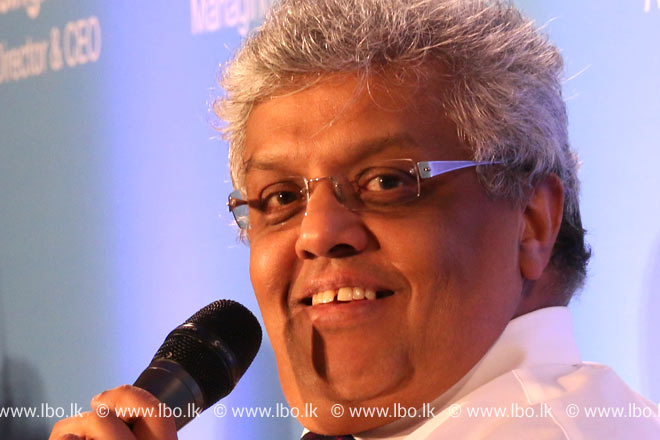In my own experience at People’s bank, (restructuring) it was one of the most difficult exercises,” Mano Tittawella, Executive Chairman and Managing Director of EAP Group said.“Nobody could operate when state enterprises would demand cash and capital. As a result you couldn’t fix proper prices for debt etc. They had vast spreads to cover their sins and everybody else in the country paid for it.” Tittawella emphasised that the state enterprises should be restructured but in a careful manner not to harm other enterprises. Mano Tittawella was a past chairman of People’s Bank and its subsidiaries during the period 2000 to 2002. He was also the first Chairman of the Strategic Enterprises Management Agency (SEMA) and a Director General of Public Enterprises Reform Commission (PERC), the then Privatization Agency of the government. Is restructuring a Solution? State enterprises are defined as legal entities that undertake commercial activities on behalf of an owner government. State enterprises which pay salaries to employees through tax payers' money have incurred losses over the past decade. They have been criticized for being bloated services. Official data shows that state group returns on assets trails far behind their privately owned counterparts. “One of the basic points that lot of people ignore is that public enterprises that are in the business of charging fees and are in commercial activities really have to be managed on a self-sufficient basis,” Tittawella says. “That should be the policy frame work,” “You take the much maligned SriLankan Airlines. It is important to decide (whether) to run a fairly backward airline just for the sake of calling it SriLankan or whether it is better to have an aviation hub in Sri Lanka at least for the South Asian region where everybody can come and everybody benefits from the activities.” “I think we need not kid ourselves on that any longer. Whether it is done through public-private partnership, whether it is done through abolishing oligopolies and monopolies, or privatization which is also a bad word from time to time. It has to be done,” “Because if commercial activities take place, the least you can expect is that funds raised for those activities are properly used,” “Now the real issue is if it is not done, state enterprises have a very unfair advantage over everybody. It tends to skew the market. It skews the capital market, it skews the debt market, it skews the competition and it really messes it up.” Small state enterprises are basking in the shadow of the big state enterprises to hide faults, according to Tittawella. However, restructuring state enterprises opens up a plethora of opportunities in the market too, Maninda Wickramasinghe, Country Head cum Managing Director of Fitch Ratings Lanka said. “There are plenty of opportunities for investment bankers to go and offer their services and raise debt, because nothing is traded. You can bring them into the trading market and that is a huge opportunity,” Wickramasinghe said. Tittawella says even though SOEs belong to the public there is hardly any information on public domains.
buy elavil online buy elavil online no prescription
buy avanafil online buy avanafil online no prescription
This must be reversed.
“I mean how transparent are these balance sheets? How effective are the reporting systems?” Tittawella asked. “It is not fair that these are opaque documents whereas the private sector is expected quite rightly be transparent,”“In the People’s bank, when we went and looked at the balance sheets it was all nice. It was profitable and all the ratios were met. When we restated the balance sheet it had a net negative worth of 35 billion rupees back in 2000.”

